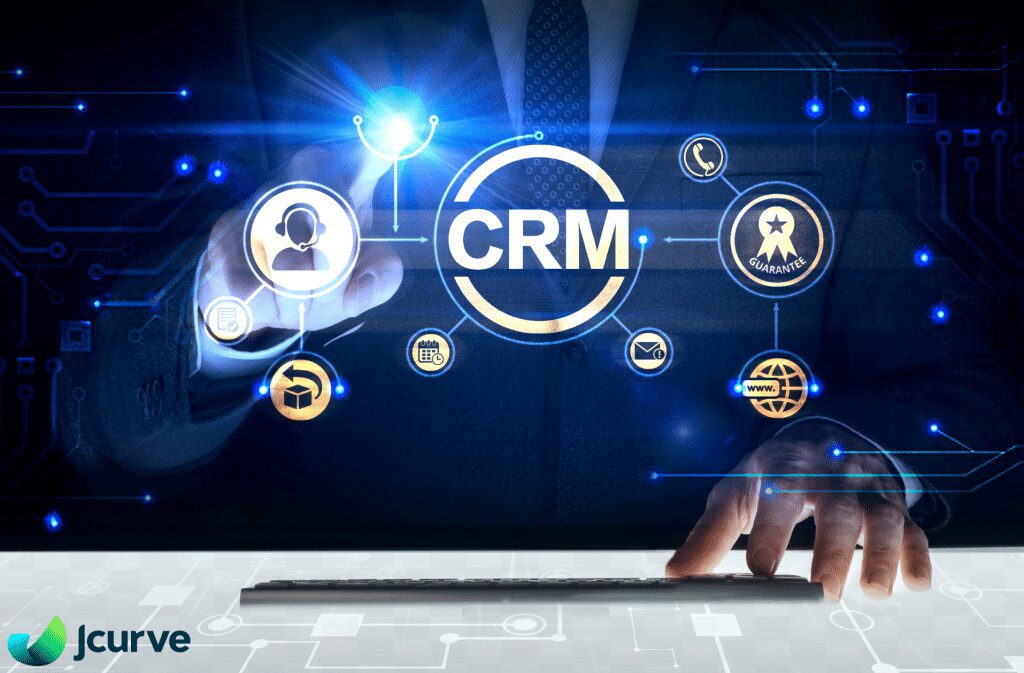Have you ever been panning for gold, as they did in the 1850s during the Australian Gold Rush? It’s hard work, spending countless hours trying to find that elusive gold nugget and it’s likely to leave you empty-handed.
For business owners, executives, and sales reps, there’s a gold rush on right now that you may not even be aware of. Many are finding gold within their existing customer and prospect data. They’re having the “Eureka” moment by using that information to build customer relationships, create meaningful interactions, leverage reporting on customer purchasing behaviour, anticipate future sales and gain complete transparency of customer communications.
You might have heard the term CRM (Customer Relationship Management) before, but haven’t seen how recording customer details can translate to uncovering gold nuggets that will help build your business. It’s time to lift the veil and see how Customer Relationship Management can help you know your customers better, forge long-term relationships, and secure more repeat business.
Why you need a CRM system
 Sales teams are often out on the road talking to customers and uncovering valuable information in the process. They have a flood of data coming in but what happens to that data? Sales reps often take a notepad with them to log their notes. Others might use a spreadsheet or word document that’s stored on their laptop. So, what happens when the sales rep is away or has to take time off unexpectedly? How can someone else pick up where they left off and continue having informed conversations with those customers?
Sales teams are often out on the road talking to customers and uncovering valuable information in the process. They have a flood of data coming in but what happens to that data? Sales reps often take a notepad with them to log their notes. Others might use a spreadsheet or word document that’s stored on their laptop. So, what happens when the sales rep is away or has to take time off unexpectedly? How can someone else pick up where they left off and continue having informed conversations with those customers?
Trying to find crucial customer information by flicking through notebooks or searching for documents when a sales rep is away is like trying to find a needle in a haystack. If you don’t have a clear view of your customers, how can you continue having valuable interactions with them?
A CRM system solves this problem by giving you one, central repository for your customer data, a way to make sense of it all, and a way to access it at any time. CRM brings together, organises and provides value to your customer communications. Your team can then start delivering a consistent message (regardless of whether they’re on the road or in the office) that, over time, develops trust and boosts customer retention.
Some of the gold nuggets you can uncover with CRM software include:
Knowing your customer better
For B2C businesses, having a single repository of customer details can make a big difference to your company’s interactions with them. This data goes beyond just knowing their age and gender. It can include details such as which social networks they spend their time on, their product preferences, and other critical pieces of data that become very helpful from a marketing perspective.
If you’re a B2B business, who are the most important contacts within your customers’ organisations and what do they do? Are they the decision makers when it comes to buying from you? Have your sales reps had conversations with them in the past, and what were those conversations about? You can start to gain a clear picture of your customer’s business, its influences, and its motivating factors with this kind of information.
“Trying to find crucial customer information by flicking through notebooks or searching for documents when a sales rep is away is like trying to find a needle in a haystack. If you don’t have a clear view of your customers, how can you continue having valuable interactions with them?”
Having a Safety Net
A lot of small businesses keep details of their customers in spreadsheets or documents stored on local laptops and PCs. Considering the data we’re talking about is your customer data, and vital to your business, this creates a considerable risk. What happens when your 3-year-old laptop gives you the dreaded “blue screen of death” and refuses to boot up again? Or when your number one sales rep leaves the business with customer details and communications that only ever existed in their memory? You get the idea. It’s a highway to the danger zone.
Making it standard process for everyone to log details in the one, easily accessible CRM system gives you an unbreakable safety net.
Getting a 360-Degree View
 Seeing rich data about your customers is powerful. When your team is also recording customer appointments, events, phone calls and ad-hoc notes, you start gaining a 360-degree view of your customers. You can see who’s engaging with your most important clients, the quality of those engagements, potential issues, the satisfaction of customers, and more.
Seeing rich data about your customers is powerful. When your team is also recording customer appointments, events, phone calls and ad-hoc notes, you start gaining a 360-degree view of your customers. You can see who’s engaging with your most important clients, the quality of those engagements, potential issues, the satisfaction of customers, and more.
Take one example of why a 360-degree view is important: if your accounting staff are contacting customers about payment issues or reminders, you’ll want to make sure there are no other factors or sensitivities to be aware of. Have your sales reps made agreements with those customers? Are customers waiting for information from your staff before making payment? Without a CRM system, it can be impossible to keep everyone across what’s happening. And that leaves you open to miscommunications, misunderstandings, and missed opportunities to keep your customers happy.
The 360-degree view provided by CRM software gives transparency across the business, keeps everyone informed, and gives your team the power to improve the customer experience at every touch-point.
Tracking your golden opportunities
There will always be leads and prospects who aren’t ready to buy right now but may do so in the future. Without a CRM, how are you going to track their progress? How will your reps track follow-ups and reminders organised for all of those contacts?
Having the right conversations with the right customer contacts is also hugely important, as is talking to the right contacts, be it the decision maker or influencer, at the right stage of the sales cycle. Imagine if your team could set tasks and reminders to follow up prospects and those tasks linked back to all details about the contact’s company, the relevant decision-makers at the company, and all previous communications. Knowing how to track and when to act on those golden opportunities is the reality with CRM software in place.
“Seeing rich data about your customers is powerful. When your team is also recording customer appointments, events, phone calls and ad-hoc notes, you start gaining a 360-degree view of your customers. “
Keeping your marketing relevant
Whether you’re marketing to your potential or returning customers, you want to send information that’s relevant to them, at the relevant time in their sales cycle. Getting it right reminds customers that you want to provide value and not waste their time with generic emails.
Your CRM data can help you create communications that feel like they were written for the individual reading it. Doing this can be as simple as using the contact’s first name or as in-depth as sending fully tailored, segmented communications based on geographic location, age, interests, and more. Using a CRM that’s integrated with marketing can make this possible.
The stage of your customer also plays an important part. Sending out communications like “Discounts on your first purchase” wouldn’t look right to a returning customer. But something titled “Help with using your new product” soon after your customer has purchased it is sure to delight them. When your CRM is integrated with your sales and marketing data, as it is with small business software like JCurve ERP, you can make sure customers receive the right messages at the right times.
Discovering a piece of history
 Having a complete history of customer interactions ensures you your team always has the right information at hand. Historical queries from customers are inevitable. At some point, a customer may call your company asking about an agreement or supply of goods or services which happened so long ago that no one within your business remembers. Luckily, a CRM system is like a history book for every customer. No matter when an interaction occurred, if it was logged in a CRM, it can be found again – quickly and easily.
Having a complete history of customer interactions ensures you your team always has the right information at hand. Historical queries from customers are inevitable. At some point, a customer may call your company asking about an agreement or supply of goods or services which happened so long ago that no one within your business remembers. Luckily, a CRM system is like a history book for every customer. No matter when an interaction occurred, if it was logged in a CRM, it can be found again – quickly and easily.
Modern CRM systems also give you a complete change history. So, even if someone has deleted a record or changed a contact name, you can track who made the change and when.
With a system that gives you the information you need, the moment you need it, it becomes clear that CRM software isn’t just about logging details. It’s about saving you time, effort, and empowering your team to deliver a better customer experience.
A glimpse into the future
Stand-alone CRM solutions can give you the perfect starting point for tracking, and making sense of, your important customer data. A CRM that’s integrated with sales and marketing data, however, lets you go beyond communications to build a picture of your customers’ buying behaviour.
When you see the spikes or trends in your sales data, you can start breaking it down by industry, geographic location, age, gender, and the list goes on. More trends will start to become apparent, such as seasonality for different industries, that you can begin to leverage. Knowing what’s impacting purchasing from your customers and being able to target the right marketing material to them, at the right time, can bring significant sales results.
A fully integrated solution, like JCurve ERP, includes CRM, sales and marketing, purchasing, and more, so all your core business data is accessible from the one place. You can pull together reporting within the one system and quickly relate data from the different parts of your business to gain deeper insights.
“Stand-alone CRM solutions can give you the perfect starting point for tracking, and making sense of, your important customer data. A CRM that’s integrated with sales and marketing data, however, lets you go beyond communications to build a picture of your customers’ buying behaviour.”
Gold to be uncovered
Having a high-calibre CRM system can be the key to understanding your customers better and building long-term relationships. Integrating it with your sales and marketing data takes it one step further, letting you anticipate buyer behaviours, intelligently target marketing campaigns and communicate with customers in a more meaningful and valuable way.
With so much gold to be uncovered, you’ll want to make sure you’re not left out in the river with just a pan and a little optimism. Find out more about how CRM as a part of ERP business management software, like JCurve ERP, can help your business growth. Send us a message or call us directly on 1800 528 783 to start a conversation.
Want the latest ideas on how to increase sales? Get your free 5-step strategy guide.










